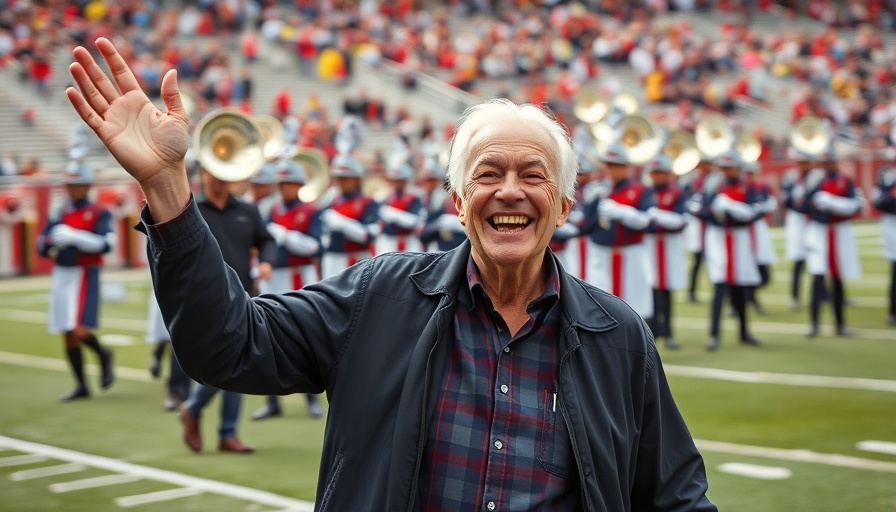
The Heartwarming Journey of Kent Broussard
At 66 years old, Kent Broussard has rewritten the narrative on what it means to pursue dreams, showcasing that age is but a number when it comes to fulfilling lifelong ambitions. His journey began more than five decades ago, in 1968, when he, as a nine-year-old, first witnessed the vibrant spectacle of the Louisiana State University (LSU) marching band at a football game. That day, amid the exhilarating music and university pride, Broussard vowed to one day be part of that iconic band.
A Dream Deferred, Not Forgotten
Life, with its myriad responsibilities, had its hold on Broussard. He built a career as an accountant, married, and raised a family, all while keeping that childhood dream alive in the back of his mind. It’s easy to lose sight of dreams in the whirlwind of adult life, but Kent’s dream was still echoing within him, waiting for the right moment to be revived.
Preparation and Determination
As he neared retirement, Broussard took a bold step and announced to his family that he would return to college to fulfill the ambition that had sat dormant for so long. The first challenge was re-learning to play the tuba, the instrument he had cherished as a young boy. With half a century since his last practice, he dedicated himself to daily rehearsals, filling his neighborhood with the rich tones of his tuba. Alongside musical training, Broussard began a rigorous fitness routine to prepare for the physical demands of marching in formation.
Student Life at LSU
Adapting to life as a student at LSU, Kent embraced the excitement of attending classes with students nearly 50 years his junior. Enrolled for 12 credit hours, he immersed himself in academic life, reminding everyone that the pursuit of knowledge and passion never truly ends. This engagement reflected a profound lesson: education and dreams are evergreen, capable of rejuvenating the spirit at any age.
Making the Band
The culmination of Kent’s efforts came during the band try-outs in August. With anticipation swirling around him, he awaited the results. When the list was finally unveiled, elation erupted in the room as fellow hopefuls celebrated their positions. Amid this joyful chaos, Kent learned he had made it—the oldest member of the LSU Marching Band by an impressive 41 years.
A Moment of Triumph
Dressed in his royal purple and gold uniform, Kent took to the football field for the first time the following Saturday. Surrounded by the cheers of enthusiastic fans—including his proud wife and daughters—Kent’s heart swelled as he played alongside the band, blending his childhood dreams with his current reality. The energy of the crowd and the music echoed the very joy he had pursued all those years.
Inspiration for All Ages
Broussard’s journey serves as a beacon of hope and inspiration for individuals of all ages. He emphasizes the importance of tenacity, stating, “Your only failure is not trying.” For many who feel their dreams slipping away with age, he stands as a vivid reminder that it is never too late to take the leap of faith toward fulfilling one’s aspirations.
Encouraging Others to Chase Their Dreams
In sharing his story, Kent wishes to inspire others to pursue their dreams, irrespective of age. It is a powerful narrative that illuminates the notion that passion knows no boundaries; whether you are stepping onto a college campus, joining a band, or embarking on any venture that ignites your spirit, the time to act is always now.
Concluding Thoughts
Kent Broussard’s story is a resounding testament to the human spirit, encapsulating the joy of pursuing dreams amidst the challenges of life. He shows us that with determination and dedication, we can always reclaim our interests, regardless of when we start. The melody of life is meant to be played boldly, resonating through the years.
 Add Row
Add Row  Add
Add 




Write A Comment